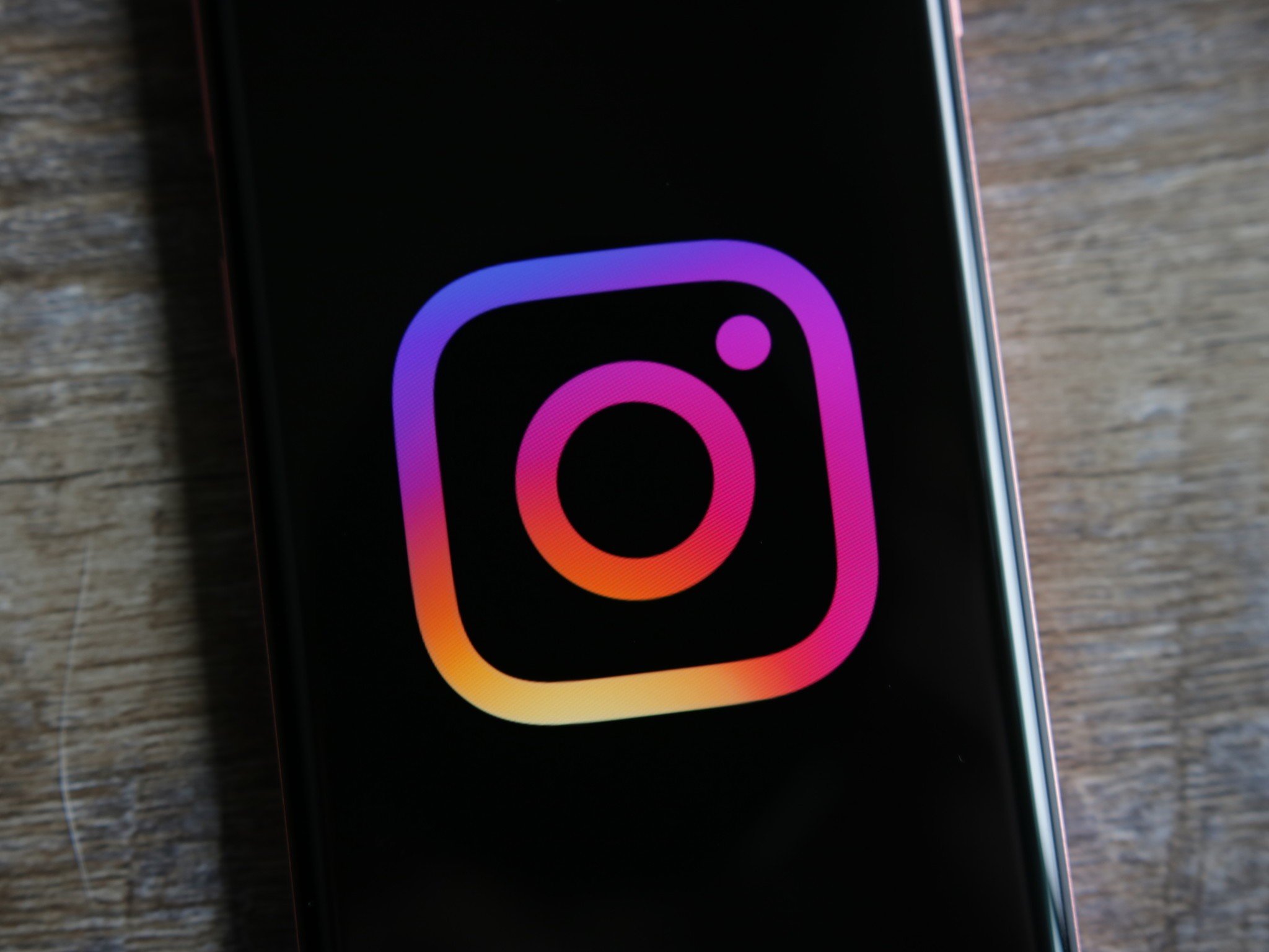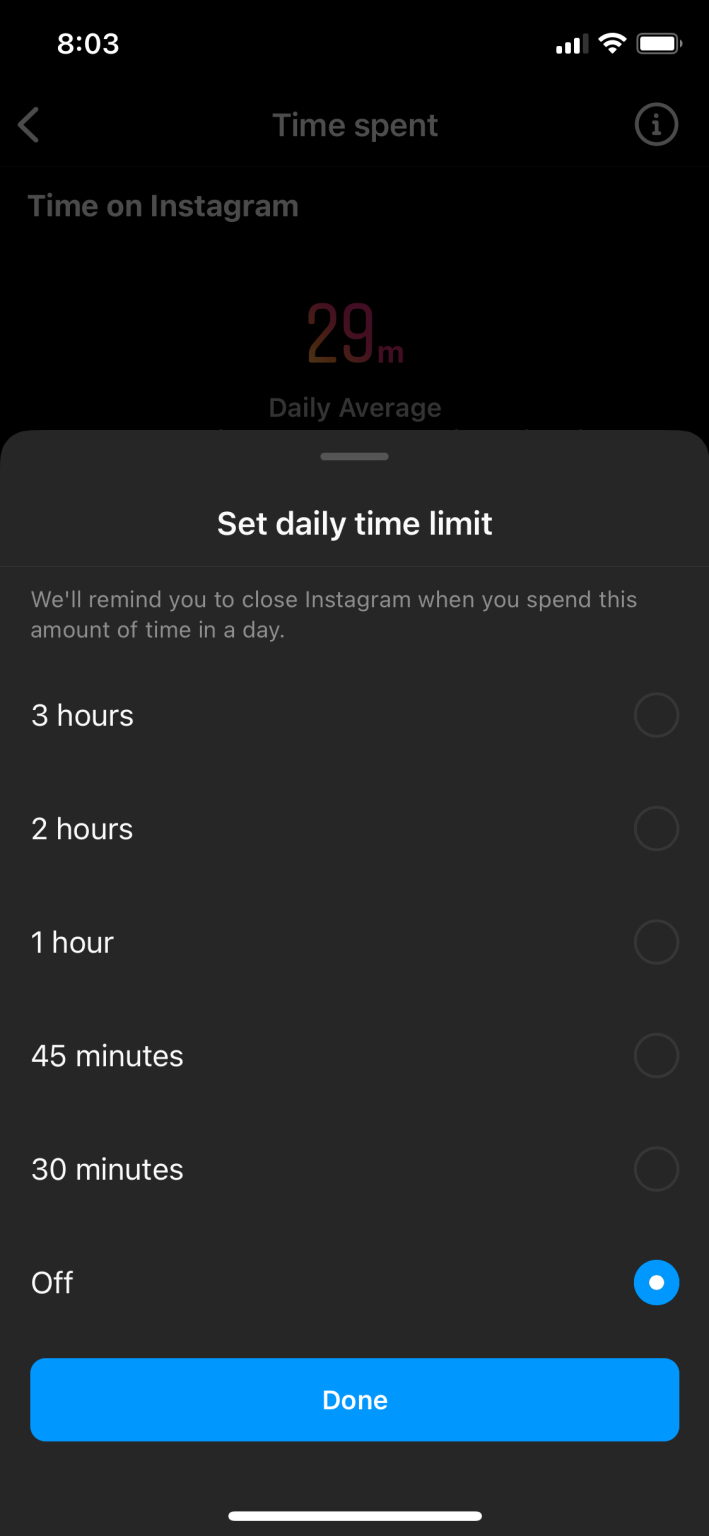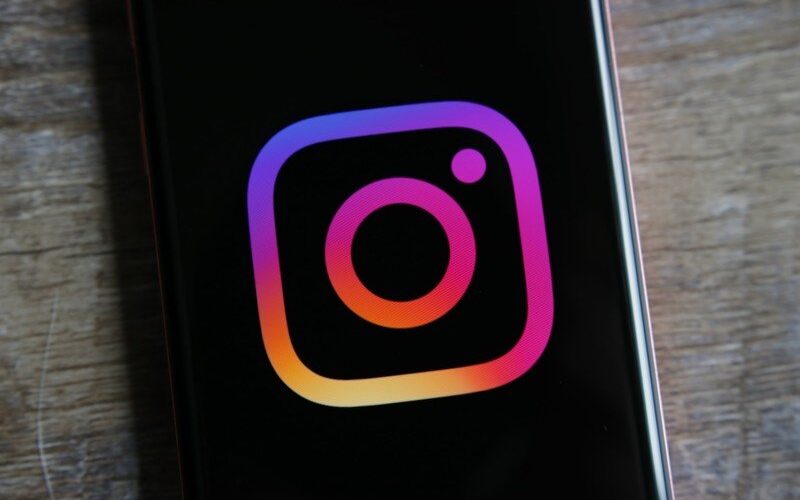 Source: Joe Maring / iMore
Source: Joe Maring / iMore
After Facebook reported the first decline of daily active users in its history, its stock experienced the largest daily percentage drop of any company in history. The company lost over 30% of its market capitalization in days.
The company, which has been mired in controversy about the effects that its products have on our mental, emotional, and societal health, had an opportunity to address this setback and recognize that manipulating its users through advertising and algorithms is not the markings of a successful business in the long term.
Instead of looking internally, the company blamed Apple’s privacy protections and its revenue solution is to try and make Instagram even more addictive.
In a report from TechCrunch, Meta is changing the “Daily Time Limit” feature on Instagram. The feature allows users to set a daily time limit to ensure that they don’t spend more time than they want to on the app. It’s an important tool for anyone who has pulled up Instagram to look at a Story or two and then found themselves coming out 30 minutes later.
Unfortunately for all of us, Meta is reducing the amount of limiting options and 30 minutes is precisely how short you can now set the “Daily Time Limit” for. According to the report, you previously had the option of setting it to as little as 15 or even 10 minutes. Now? It’s 30 minutes at a minimum. Even worse, 30 minutes is the last suggested time limit with the first suggestion sitting at a staggering 3 hours.

Source: TechCrunch
Meta sent a statement to TechCrunch that pointed out that Instagram also offers a “Take a Break” feature that can be set at ten-minute intervals. It will pop a full-screen notification to leave the app every ten minutes – if you set it up of course.
“We have two time management features. Our existing ‘daily limit’ shows you a notification when you’ve hit your daily limit, but our newest feature ‘Take A Break’ shows you full-screen reminders to leave the app, and includes 10 minute intervals. We changed the ‘daily limit’ options to avoid sending people multiple notifications at the same time.”
Now, for anyone who has used TikTok, you know that you have come across their version of this – a video of someone going “HOLD ON! You’ve been watching for a while and you might want to take a break.” Do you know what we do with these videos? We blow right past them.
I can’t imagine anything will be different with Instagram’s “Take a Break” feature. You’ll set it up with every intention of actually taking a break – until you actually get to that screen. Then, just like TikTok, dismissing that notification will become second nature for most of the people that enable it.
So, instead of being a feature that truly gets you to take a break from the app, it will instead become a way to get users to say “ten more minutes” as they dismiss the notification again and again. As much as Instagram would love to point to the feature as every bit as good as “Daily Time Limit,” it knows that, in reality, it will lead to more time spent in its app and more revenue for Meta.
Instagram’s number one goal is to keep you on its app for as long as it possibly can so it can serve you more targeted ads that you will click on and buy something. With the reduction of options for setting a “Daily Time Limit,” the company is once again choosing itself over what’s actually best for the health of its users.
Thankfully, both iOS and Android offer their own versions of “Daily Time Limit” that can be enabled across more than just Instagram. Apple’s version, called Screen Time, not only allows you to set daily time limits for apps but also restricts access to them at certain times of the day.
So, if you want to make sure you don’t sit in bed and scroll Instagram instead of sleeping, you’re best off using your phone’s built-in features rather than relying on Meta to do what’s best for users.
Source link



